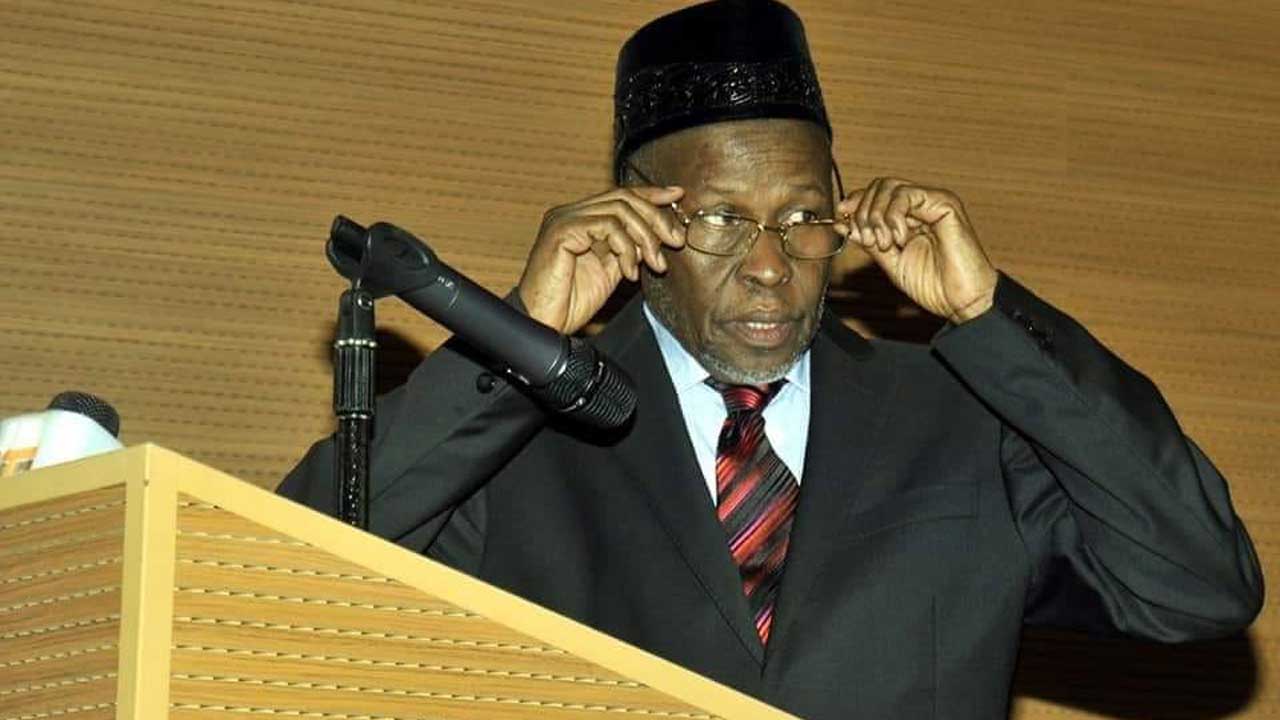Chief Justice of Nigeria (CJN), Justice Ibrahim Mohammad, has foreclosed the possibility of appointing Justices for the Supreme Court from among practising lawyers.
Although Justice Mohammed said there is a lot of pressure and calls for a review of the current appointment process that gives priority to career judges and Justices, the CJN insisted that he was not ready to yield ground on the matter.
He argued that those campaigning for the appointment of judges to the Court of Appeal and Supreme Court from the Bar were not considering the drawbacks inherent in such move.
Mohammad spoke in Abuja at this year’s edition of the annual conference of the Justices of the Court of Appeal.
“I wouldn’t want to say much on the process of selecting Justices from the Court of Appeal to the Supreme Court. But one thing on which I am positively assuring you, although there is a lot of pressure, is that we will retain the old regime.
“Those of us who passed through the Court of Appeal spent a number of years in the Court of Appeal, and we had a lot of experience and created a lot of relationship in the Court of Appeal. We will feel slighted if we are made to take anybody straight from outside.
“I don’t know. There is a lot of calls, a lot of insistence that we should take a look at the process we currently use in appointment to the Supreme Court and that we should not concentrate on the Court of Appeal alone. I say no.
“But, may be it is because I am biased; because I am a son of the Court of Appeal, and I know the number of years that I spent in the Court of Appeal. And I know the experiences I gathered in the Court of Appeal. I know the number of Justices that I met and made friends with in the Court of Appeal, and we still telephone each other till today,” Mohammad said.
The CJN said he was not, by his position, denigrating practising lawyers, but that it would be an act of injustice against career judges and Justices who have committed years to the Bench and have no other options, like practising lawyers have.
“This is somebody who has followed through the line. For example, myself. I started as a Magistrate Grade II. Going down the ladder, I wouldn’t want the authority to forget those of us who have been around.
“You grew up from the magistracy, rising through the ranks, and then they say we are not taking candidates for the Supreme Court from the Court of Appeal; we are taking from among the practising lawyer.
“We are not denigrating the practising lawyers. That is why I said let’s call a spade a spade.
“A practising lawyer may have a lot of openings. Tell me: what are your openings? What is the way forward for you? Please, let’s put our heads together. Don’t entertain that kind of thing.
“As far as I am concerned, the Supreme Court is the last stage. Anyone of us who grew up with the system and has continued to grow, why stagnate him? We know that it is not everyone of us will get to the Supreme Court. That is destiny.
“If somebody is brought from outside, it will take time to train such a person to fit in. I am with the old regime that we should train those who are already on the line.
“If you want to be a judge, you should join at the High Court; most of them do not want to join at the High Court. That is the best place for you to start.
“I don’t think it will be the right thing to appoint somebody straight to the Court of Appeal, because you have to train and teach him/her.
“Let me pose this question: supposing you retire now; or, God forbid, something happens and they retire you compulsorily, or you are even dismissed. Nobody is praying for that. But, assuming any of them happens, can you go into practice?” he queried.
The gathering responded by shouting no.
Mohammad’s position is a clear departure from the reported plan under his immediate predecessor for the appointment of some Senior Advocates of Nigeria (SANs), who were rumoured to have been interviewed and shot-listed.
The Supreme Court currently has about 14 Justices, following the retirement of Justice Kumai Aka’ahs on December 12, 2019.
Earlier in the year, Justice Walter Onnoghen (who was then the CJN) resigned after he was convicted by the Code of Conduct Tribunal (CCT) for breaching the code of conduct for public officers.
Shortly after Mohammad became the CJN, Justice Sidi Dauga Baga resigned to become the Emir of Lafia in Nasarawa State.
At the end of its meeting on October 23, 2019, the National Judicial Council (NJC) recommended the appointment of four Justices for the Supreme Court from among those serving at the Court of Appeal.
They are: Justices Adamu Jauro (Northeast), Emmanuel Agim (Southsouth), C. Oseji (Southeast) and Helen Ogunwumiju (Southwest.
Earlier at the conference on December 12, President of the Court of Appeal, Justice Zainab Bulkachuwa, stressed that this year’s edition was her last, because she will retire before the next edition.
Bulkachuwa spoke on the essence of an effective court system for sustenance of any democratic society, adding: “Court administration is a subject of vital importance, not only to those engaged in the task of administering justice, but also to the broader community.
“It is difficult to imagine a society or community which is not dependent upon the rule of law for its development and prosperity.
“Judicial values are crucial for the proper working of the judicial system in a democratic society and for adequate service delivery for the citizens who are seeking justice.”



